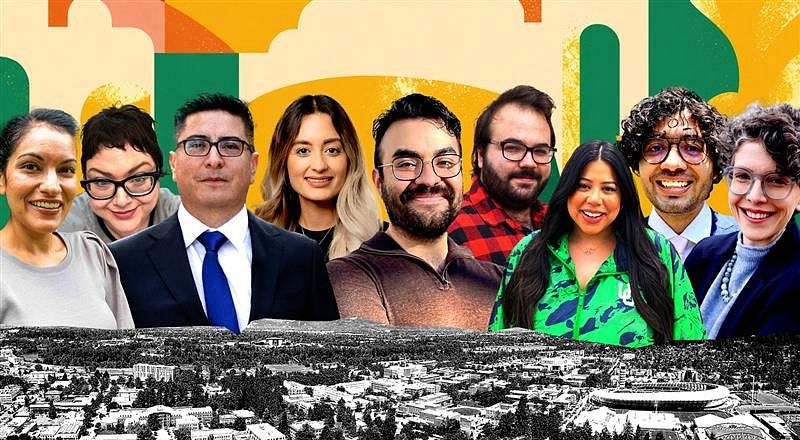Tolerance, inclusion, curiosity, and openness are essential to advancing human understanding and, thus, essential to the intellectual and academic mission of the College of Arts and Sciences.
Academic excellence and innovation can only come from embracing and engaging in perspectives from a variety of cultures, languages, and knowledge systems. Recognizing that there can be no meaningful learning without challenge and difference, we are committed to doing the important work necessary to advance inclusion and equity in all classrooms, labs, and learning spaces.
Our Commitment to Equity
The University of Oregon College of Arts and Sciences embodies a student body population that represents variety of race, ethnicity, gender, age, religion, ability, sexual orientation, gender identity, socioeconomic status, and more. These experiences are celebrated and our community's goal is to come together to understand and address the important issues that our society face.
All our faculty and staff have a responsibility to challenge themselves every day to create an environment that is fair, equitable, inclusive, and respectful as we help students reach their academic and personal goals. We believe listening to each other, interrogating our own assumptions and biases, and striving to make sure all voices are included are vital to our collective success.
The leadership of the College of Arts and Sciences is located in Tykeson Hall in the heart of campus, a fitting place for the liberal arts hub of the university. Our team is committed to persistent, proactive, and continuous efforts to make our campus equitable and inclusive for all.
Entering Tykeson through the north entrance, you can see an inscription from W.E.B. Du Bois, the legendary US civil rights activist and scholar: “Education must not simply teach work, it must teach life.”
At our college, we are committed to fulfilling Du Bois’s faith in education. Academic lessons must teach us lessons for life by helping us understand our world, our science, our history, our cultures, and each other.
Resources for Students, Faculty, and Staff
The College of Arts and Sciences is committed to advancing an authentically inclusive community of scholars and helping all its members connect with the resources they need to excel in learning, in life, and in the spirit of discovery. Find your community and thrive here.
Honoring Native Peoples and Lands

The University of Oregon’s Eugene campus is located on Kalapuya Ilihi, the traditional indigenous homeland of the Kalapuya people. Following treaties between 1851 and 1855, Kalapuya people were dispossessed of their indigenous homeland by the United States government and forcibly removed to the Coast Reservation in Western Oregon.
Today, descendants are citizens of the Confederated Tribes of Grand Ronde Community of Oregon and the Confederated Tribes of the Siletz Indians of Oregon, and continue to make important contributions in their communities, at the University of Oregon, and across the land we now refer to as Oregon.
CAS invests in Latinx studies-related faculty across several departments

In fall 2024, nine tenure-track faculty members joined the College of Arts and Sciences, in what is a comprehensive investment in the college’s Latinx studies-related course offerings, in several departments across the college's three divisions.
In addition to offering courses for a growing minor program, the new faculty hires will mentor CAS undergraduate and graduate students. Creating a culture where every member of the CAS community—especially those from traditionally underrepresented populations—feels connected and supported is a cornerstone of the college's strategy.
College of Arts and Sciences Events
Ready to arrive at UO? Whether you're applying as an undergraduate, a graduate student, or just looking to visit, find out how.
Help ensure that teaching, research, advising, mentoring, and support services are robust and fully available to every student.

